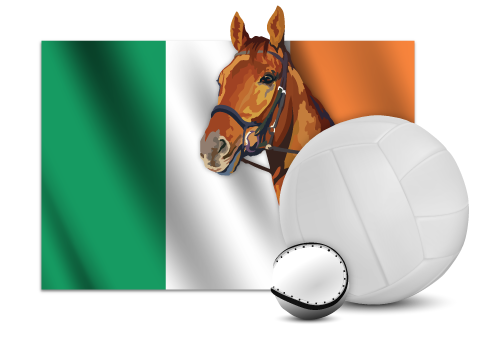 Ireland is a small, proud nation that packs a big sporting punch, quite literally in terms of its overachievement in boxing. Ireland (by which we chiefly mean the Republic of Ireland, though there is some crossover with Northern Ireland in terms of rugby) punches above its weight in many areas, though perhaps none more so than in horse racing.
Ireland is a small, proud nation that packs a big sporting punch, quite literally in terms of its overachievement in boxing. Ireland (by which we chiefly mean the Republic of Ireland, though there is some crossover with Northern Ireland in terms of rugby) punches above its weight in many areas, though perhaps none more so than in horse racing.
The Emerald Isle can boast some of the best jockeys, trainers and horses of all time and racing is a huge passion for many of its residents. But Ireland also hosts a range of other sports including golf, football and many others, and we’ll look at those in more detail here.
Jump To: Horse Racing | Football | Gaelic Football | Hurling | Golf | Rugby | Boxing | Cricket | Darts & Snooker
Is Horse Racing the Biggest Sport in Ireland?
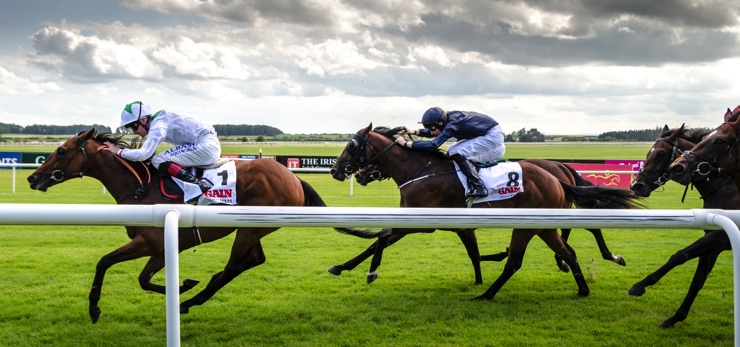
There are few, if any, countries that can match the Irish when it comes to their passion for horse racing. Horses have long played a key part in Irish culture and racing has existed on the island for hundreds of years. Modernity has done little to alter the love many Irish people have for horses and this wonderful sport, and Ireland is now home to many of the biggest and best breeding and training operations in the world.
Many of Ireland’s top horses, trainers and jockeys ply their trade regularly in the UK. It is a common occurrence to see Irish winners of the biggest races at Royal Ascot and the other major United Kingdom meetings, whilst the Irish presence both on and off the track at the Cheltenham Festival is very well documented.
However, there are a number of huge races and festivals on the Emerald Isle as well which see the best home talent but also attract stars from the UK and further afield too. As in the UK, racing takes place almost every day of the year in Ireland but we’ll focus on the biggest events here, so let’s take a look at the contests that are certainly not to be missed.
National Hunt to the Fore?
It is very hard to say whether flat or jumps racing is more popular in Ireland but one thing that we can say is that the Emerald Isle is certainly one of the biggest National Hunt hubs on the planet. Much of the world tends to stick to flat racing but, like the UK, Ireland has a huge love for seeing horses face the extra test of obstacles.
Fans of jumps racing in Ireland have no shortage of huge festivals to enjoy and the only place to start is with what many consider to be the Irish Cheltenham…
Punchestown Festival

To some, perhaps those with green eyes, Punchestown is bigger and better than Cheltenham. Whilst it may not be able to compete with the prize money offered at Prestbury Park, it has an extra day of racing (five compared to Cheltenham’s four), the Guinness is better and the craic certainly holds its own too.
This five-day feast of jumps action takes place in April or early May every year, following the Cheltenham Festival. Punchestown Racecourse, the unofficial home of Irish jumps racing, is the host and is located in County Kildare, around 20 miles south west of Dublin.
As you can imagine, over five days there are a huge number of big races but the biggest and best are as follows:
- Punchestown Champion Chase – Grade 1, two miles
- Herald Champion Novice Hurdle – Grade 1, two miles, 100 yards
- Champion Novice Chase – Grade 1, three miles, 120 yards
- Punchestown Gold Cup – Grade 1, three miles, one furlong
- Champion INH Flat Race – Grade 1, two miles, 70 yards
- Champion Stayers Hurdle – Grade 1, three miles
- Ryanair Novice Chase – Grade 1, two miles
- Punchestown Champion Hurdle – Grade 1, two miles
- Champion Novice Hurdle – Grade 1, two miles, four furlongs
- Champion Four Year Old Hurdle – Grade 1, two miles
- Irish Daily Mirror Novice Hurdle – Grade 1, three miles
- Mares Champion Hurdle – Grade 1, two miles, two furlongs
Anyone familiar with Cheltenham will see similarities with the races mentioned here as many of the contests listed above have Cheltenham equivalents. It is far from uncommon for a horse to attempt the double; for example, the relatively unheralded Sizing John won both versions of the Gold Cup in 2017.
Another similarity with the Cotswolds event is the sheer number of top level races. There are 37 Grade 1 races run in Ireland and the Festival hosts almost a third (12, correct as of 2020), with the course itself being home to a further two (the Morgiana Hurdle and the John Durkan Memorial Punchestown Chase) earlier in the season.
Leopardstown Hosts Top Action Galore
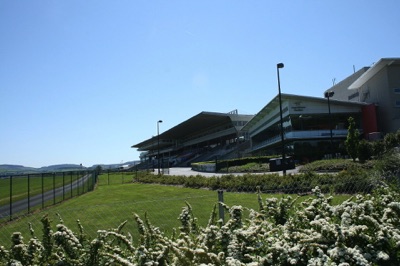
Aside from Punchestown, it is Leopardstown, in County Dublin, that is the other big hub of NH action in Ireland. This track, around five miles from the Irish capital, hosts a whopping 15 Grade 1 contests every year, more than any other.
Leopardstown hosts both jumps and flat racing (more on the latter below) but its biggest National Hunt races are spread over a few key meetings. The biggest of those are the Dublin Racing Festival, which is typically held at the end of January or start of February, and the Christmas Festival, which takes place from the 26th to the 29th December.
The Christmas Festival, as with Kempton’s semi-equivalent, is a great tonic to having been cooped up with distant family for too long. After a long day indoors eating and drinking (which obviously is great fun too!), getting out to the races on the 26th and getting some fresh air is a brilliant tradition for many Irish punters. Here are the big races from the four-day festival (note that names may change due to sponsorship arrangements):
- Racing Post Novice Chase
- Knight Frank Juvenile Hurdle
- Paddy’s Reward Club Chase
- Paddy Power Future Champions Novice Hurdle
- Christmas Hurdle
- Savills Chase
- December Festival Hurdle
- Leopardstown E.B.F. Mares Hurdle
- Fort Leney Novice Chase
All of the above contests are Grade 1 contests with the exception of the Knight Frank Juvenile Hurdle (Grade 2) and the Leopardstown E.B.F. Mares Hurdle (Grade 3).
Once Christmas is over and done with, many at Leopardstown turn their attention to the Dublin Racing Festival. The big contests of this two-day affair can be seen below, with all of these Grade 1 affairs, illustrating just what a high class weekend of racing this is. With a couple of Grade 2 races also taking place during the meeting, this really is one not to be missed. Note sponsorship names, where used, were correct as of 2020:
- Golden Cygnet Novice Hurdle
- Dublin Chase
- Arkle Novice Steeplechase
- Irish Champion Hurdle
- Spring Juvenile Hurdle
- Chanelle Pharma Novice Hurdle
- Flogas Novice Steeplechase
- Irish Gold Cup
Easter Means Fairyhouse

The Irish Grand National is the centrepiece of the Fairyhouse Easter Festival and this contest, the Irish equivalent of the iconic race held at Aintree (which is held around the same sort of time), offered up a whopping €500,000 in prize money in 2019. Fairyhouse is in County Meath in the province of Leinster, about 20 miles north-west of Dublin and is home to five Grade 1 races, with two of those occurring during this three-day affair which starts on Easter Sunday.
The National, in common with the English version, is not a top level contest but is a Grade A handicap. Dating all the way back to 1870, it is shorter than the Aintree equivalent at 3m5f, there are 24 fences to contend with and a number of horses have triumphed here and also on Merseyside, though none in the same year.
The following horses are among those to have done the double, whilst the legendary duo of Desert Orchid and Arkle also list this race among their many triumphs:
- Ascetic’s Silver
- Rhyme ‘n’ Reason
- Bobbyjo
- Numbersixvalverde
The two Grade 1 races to be held during the meeting are the Fairyhouse Gold Cup and the Mares Novice Hurdle Championship Final. The latter is a relatively new contest, first run in 1995 and won by Cheltenham great Annie Power in 2013 but the former is by far the bigger race.
Called the Ryanair Gold Cup since 2015, this is another huge Irish event that includes Arkle on its roll of honour. Captain Christy, who won the Cheltenham Gold Cup whilst a novice and Like-A-Butterfly include this on their CVs, whilst more recent winners include Road to Respect and another who won the Cheltenham showpiece, potential superstar Al Boum Photo.
There are a number of other big races scattered around the Emerald Isle as well, and whilst it may seem that many of the biggest contests all take place in or around Dublin that isn’t the case. Limerick, Cork, Clonmel, Galway and Thurles are just some of the other Irish courses that are well worth a visit.
Limerick hosts the Grade 1 Greenmount Park Novice Chase, won in 2019 by Faugheen, whilst a number of big Grade 2 and Grade 3 races take place at the other courses. In short, if you like National Hunt racing, in Ireland you’ll be spoiled for choice.
Galway Shows There is More to Life than Status

Punchestown and Leopardstown may boast the quality but when it comes to quantity, Galway’s famous Summer Festival is hard to beat. Starting on the first Monday of July this extravaganza sees a whole seven days of racing and attracts more than 100,000 spectators each year. With loads going on off the track, this is a brilliant occasion in a lovely, romantic town.
The European Capital of Culture in 2020, Galway lies in the west of Ireland and offers great seafood, a wide range of art options and – did we mention? – a racing, betting and drinking bonanza that lasts a full week! If you like your NH racing low key and with the chance of sun on your back, this is undoubtedly the place to be, with racing highlights including the Galway Plate and the Galway Hurdle, both handicaps.
Flat Racing in Ireland
It isn’t just about chases, hurdles and bumpers in Ireland and there are also plenty of big contests for fans of racing on the flat (and that’s without even considering the hugely popular point-to-points). When it comes to flat racing over the Irish Sea there is one course that really dominates and that is the Curragh in County Kildare.
Curragh Racecourse

Situated about an hour’s drive south west of Dublin, Curragh Racecourse, or the Curragh as it is normally called, hosts 11 of the 13 Group 1 races that take place in Ireland. That includes all five of the Classics, which mirror their English equivalents: the Irish Derby, the Irish Oaks, the Irish 1,000 Guineas, the Irish 2,000 Guineas, and the Irish St Leger.
The two Guineas contests take place in May, with another Group 1, the Tattersalls Gold Cup, also taking place during this meeting. June or July sees the Derby and the Oaks, plus the 1m2f Pretty Polly Stakes, the latter taking place on the final day of the three-day meeting which hosts the two Classics. Once again mirroring the English races, the St Leger is the last of the five big ones and takes place in September.
The other Irish Group 1 flat races are as follows and are held at the Curragh unless stated:
- Phoenix Stakes
- Matron Stakes (Leopardstown)
- Irish Champion Stakes (also Leopardstown)
- Moyglare Stud Stakes
- Vincent O’Brien National Stakes
- Flying Five Stakes
The Curragh also has a stranglehold on the second tier events too, with all but one of the 12 Group 2s being hosted by the course. Once again it is Leopardstown that hosts the exception so the message is fairly clear: if you love high quality flat racing, the Curragh is the place to be in Ireland.
Football

Football is a huge passion in Ireland and you only have to visit the country’s airports on a Friday night or Saturday morning to see that. Flights to Liverpool and Manchester are especially busy, with Irish fans tending to support Premier League teams with more passion that they do their local clubs.
Domestic Irish football is a low key affair and certainly attracts little interest outside the country itself. However, when the international team play the whole country certainly get behind the Boys in Green and they have achieved some memorable wins, especially en route to the quarter finals of Italia ‘90 and when making the World Cup last 16 in 1994 and 2002.
Until 2020, Ireland had never hosted a major tournament but Dublin is one of the 12 cities that will host matches at Euro 2020. Three Group E games will take place at the Aviva Stadium, as well as one last 16 tie. Ireland has also considered bidding for other major tournaments, either jointly with the North or in partnership with Scotland and Wales.
Gaelic Sports

Gaelic sports are watched and played by few people outside of Ireland but for those who live on the island or have Irish blood, the likes of hurling and Gaelic football are hugely important. Both are administered by the Gaelic Athletic Association (GAA) and attract huge and passionate crowds.
Both are amateur sports and it is hugely refreshing in this era of professionalism, where money is frequently the first, last and indeed only consideration, to see tens of thousands of people attend a game where the stars might usually be seen behind the local bank desk or policing the streets. The people taking the field might not be professional sportspeople but there is no doubting the pride they and their supporters take in representing their local side. Equally there can be no doubting that the big games in both hurling and Gaelic football are major sporting events not to be missed.
Gaelic Football

The All-Ireland Senior Football Championship is the top prize in Gaelic football which, for the uninitiated, is a little like Australian rules football. The sport dates back to the late 19th century and there are thought to be around 2,500 clubs around the world, with the majority in Ireland but as far afield as the UAE, Australia and Singapore.
The big game, the All-Ireland Final, takes place on a Sunday afternoon in September. Croke Park in Dublin is the venue and more than 80,000 fans pack in to see the action, with as many as 1.3m watching on from home – huge numbers considering this is an amateur contest in a country with a population of less than five million.
The format has changed over the years but there are various stages through which county teams must progress in order to make it through to the final two. Games are played at various major venues in larger towns and cities, including two in Northern Ireland, with Ulster province home to two separate stadia, whilst teams from London and New York also take part.
Kerry are the most successful side in the history of the sport, having won 37 titles. Gaelic football may be a puzzling spectacle for those unfamiliar with the game but all of the matches on the road to Croke Park are huge affairs and magnificent sporting occasions.
Hurling
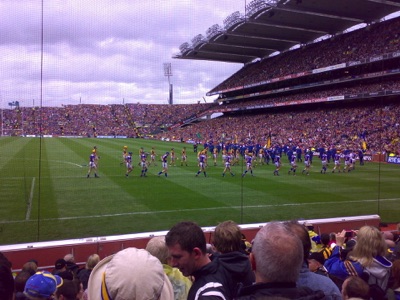
Hurling has been played, it is thought, for more than 4,000 years and has some real similarities with Gaelic football, being played on a pitch of the same size and shape, with the same number of players and same goals and scoring system.
However, whilst Gaelic football is akin to Aussie rules, hurling is closer to shinty, hockey and lacrosse in terms of the gameplay. As said, hurling is also run by the GAA and the showpiece event is once again called the All-Ireland Championship (All-Ireland Senior Hurling Championship to use the full name).
The world’s most prestigious hurling competition is run on a knockout basis and always has been, though the means of qualification have changed over the years. With 36 titles, Kilkenny are the most successful team in this amateur sport and the All-Ireland final was listed second in a CNN feature on must-see sporting events (behind the summer Olympics).
As with Gaelic football, the fact there is no real divide between fans and players and that players are invariably local, means that Irish people are hugely passionate about hurling. The big games are massive sporting events, with hundreds of thousands of fans attending the limited number of games (just seven) that comprise the “finals” with millions more watching on from home.
Golf

Leaving aside the hugely popular Gaelic sports, golf is easily one of the biggest sports in Ireland. The country is littered with fabulous courses and these world class facilities mean that Ireland has hosted and will continue to host some top tournaments. Ireland has had some wonderful players over the years too and whilst Rory McIlroy is from Northern Ireland, he has represented Ireland before and said in 2019 he intended to do so again at the 2020 Olympics.
Politics aside, McIlroy is one of the greatest “Irish” players ever and along with the likes of Shane Lowry, Padraig Harrington, Paul McGinley and others, has really helped the sport grow at home. Ireland is, of course, also a fabulous option for a golfing holiday too but in terms of major sporting events from the world of golf it is actually quite limited, although that is no huge surprise for such a small country.
The Irish Open is, naturally enough, the big one, and in fact it is the only major tour event to take place on the Emerald Isle on a regular basis. First held in 1927, it has been something of an on and off event, and has been held at a number of different courses, including some in the North. Now a regular fixture, it has been hosted by the Rory Foundation in recent years and attracts big names as one of the Rolex Series events and a good warm-up (and qualifier) for the Open Championship.
Perhaps Irish golf’s biggest moment came in 2006 when the K Club, west of Dublin, hosted the Ryder Cup. Adare Manor in County Limerick has been awarded the 2026 edition of this huge bi-annual event, giving Irish golf another chance to shine.
Rugby

Rugby union is very popular in Ireland and the “domestic” league is very well supported. The PRO 14 sees club sides from Ireland compete against those from Wales, Scotland, South Africa and Italy. Ireland is home to four of the 14 teams and Leinster is the most successful side in the entire history of the competition, having claimed glory six times, as well as being runner-up five times. Indeed, Ireland have won 11 of the 18 completed seasons to date and Dublin has frequently played host to the deciding game.
Irish sides also take part in pan-European competitions, the most prestigious of which is the European Rugby Champions Cup. Leinster again lead the way in this, level at the top with Toulouse on four titles, with Irish clubs having won seven continental trophies in all (and lost the final a further four times).
With the Six Nations also taking place every year, two or three games at the Aviva (again), plus further international friendly and warm-up games, there is lots and lots of major, high quality, rugby to enjoy in Ireland.
Boxing

As alluded to, Ireland tends to overachieve in the sport of boxing and it is certainly a sport many on the island love. Some of the best pugilists come from Northern Ireland, such as Barry McGuigan, Wayne McCullough and Carl Frampton but there are plenty of former and current world champions from the Republic too. Many of Ireland’s best fighters, including Jack “Nonpareil” Dempsey, made their names in America but remained proud Irishmen, but there is no questioning the Irish credentials of Steve Collins, nor of Katie Taylor.
It is relatively unusual for Ireland to host huge fights, although not unheard of, with these taking place in Dublin, with smaller, local fights being held around the country.
Cricket
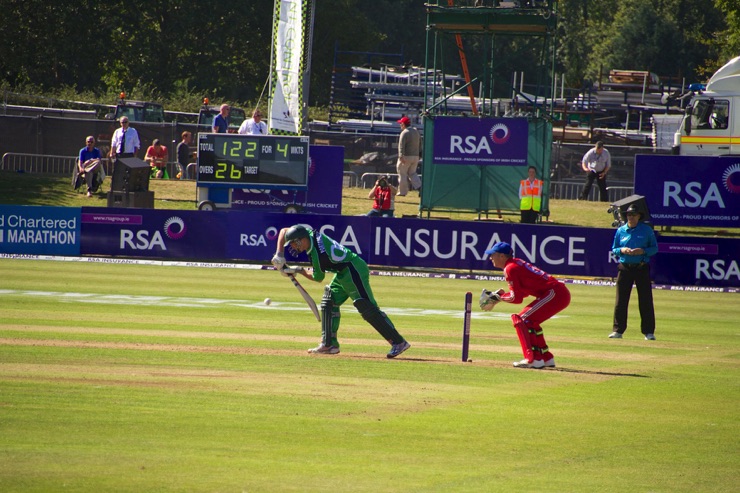
There is no domestic cricket competition of note but cricket in Ireland has really grown over the years and, at the time of writing, the World Cup winning captain has as strong a Dublin accent as you could wish to hear. Eoin Morgan lifted the 50-over World Cup for England but his prominence is part of the reason why the sport is being taken more seriously.
The national side has qualified for the World Cup (and the T20 equivalent) multiple times and is one of the “best of the rest”, outside of the major Test-playing nations. Indeed, Ireland is now a full ICC member and has played three games in the most traditional form of the game, with hopes that England versus Ireland can become a regular fixture.
Darts & Snooker
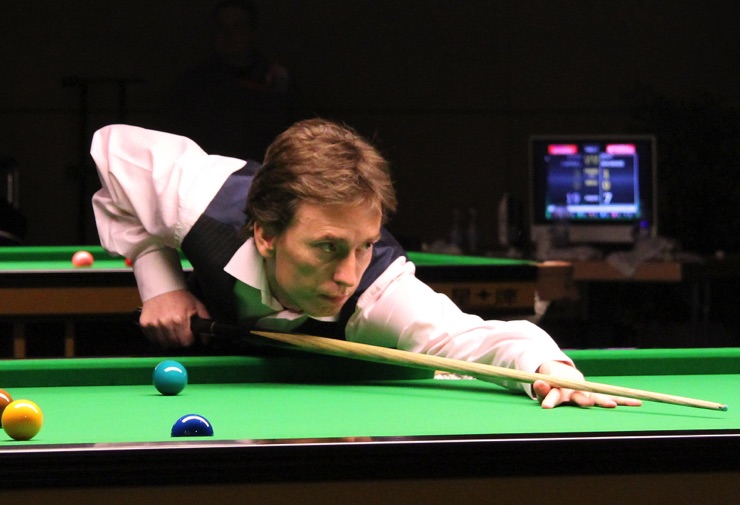
Ireland shares the UK’s affinity with sports that many disparage as mere games and which, coincidentally or not, are often played in pubs and bars. The Emerald Isle can’t match the UK in terms of the number of world champions or quantity of big events in either sport but none the less, both darts and snooker are very popular in Ireland.
Ken Doherty is the Republic’s only snooker world champion and the ROI hosted the Irish Masters from 1975 until 2007 but that event may yet return. Various other tournaments have been and gone from Ireland over the years, or been staged there for a year in events that move around. At the time of writing, there is no regular top level snooker held in Ireland but that situation is very likely to change.
When it comes to darts we have a broadly similar picture and in fact the south of the Ireland has never had a world champion. However, in terms of major tournaments taking place, the Premier League of Darts is a regular visitor to Dublin and it provides a great chance to see the very best in the world in action. The World Grand Prix, another one of the PDC’s flagship events, also calls Dublin home and has done since 2001.